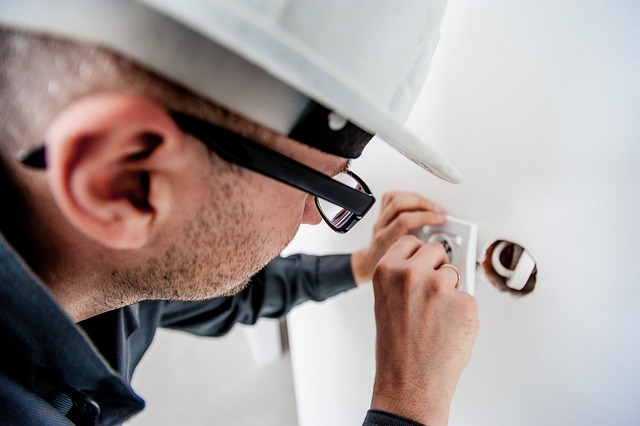Electricians play a vital role in ensuring uninterrupted electricity during outages or natural disasters by installing and maintaining backup power systems featuring generators. Skilled professionals integrate these systems into existing infrastructure, perform testing and troubleshooting, and provide regular maintenance to guarantee optimal performance when critical operations demand it most.
Looking to safeguard your home or business against power outages? Backup power systems, powered by reliable generators, are essential. This article delves into the critical role electricians play in installing these systems. From understanding the intricacies of backup power to selecting and setting up the right generator, electricians are the key to ensuring uninterrupted electricity during unexpected disruptions. Discover how their expertise guarantees a robust and safe power source for your peace of mind.
- Understanding Backup Power Systems and Their Importance
- The Role of an Electrician in Installing Generators for Backup Power
Understanding Backup Power Systems and Their Importance

Backup power systems play a crucial role in ensuring uninterrupted electricity supply, especially during outages or natural disasters. These systems are designed to provide emergency power to critical facilities like hospitals, data centers, and public safety agencies. An electrician is often at the forefront of installing and maintaining these vital systems, which typically include generators.
Understanding how backup power systems function is essential for any electrician. Generators act as a reliable source of electricity, kicking in when the main grid fails. They can be powered by various fuels, such as diesel or natural gas, and are capable of providing instant power to support essential operations until the main power source is restored. Efficient installation and regular maintenance by skilled electricians ensure these systems operate seamlessly when needed most.
The Role of an Electrician in Installing Generators for Backup Power

When it comes to installing generators for backup power systems, an electrician plays a pivotal role. Their expertise is indispensable in ensuring these critical systems function safely and effectively. Electricians are trained to understand complex electrical systems, allowing them to integrate generators seamlessly into existing infrastructure. They handle the wiring, connections, and grounding, all while adhering to stringent safety standards, which are paramount when dealing with backup power solutions.
The skills of a qualified electrician extend beyond basic installation. They also perform crucial tasks like testing and troubleshooting any issues that may arise post-installation. Regular maintenance checks carried out by these professionals guarantee the generator’s longevity and optimal performance when called upon to provide backup power.
When it comes to ensuring uninterrupted power supply, especially during emergencies, a well-installed backup power system is paramount. This is where electricians play a pivotal role. Their expertise in handling generators ensures these crucial systems are not only set up correctly but also maintained to provide reliable backup energy. An electrician’s skill and knowledge are indispensable for creating a robust safety net against power outages, safeguarding homes and businesses alike.
